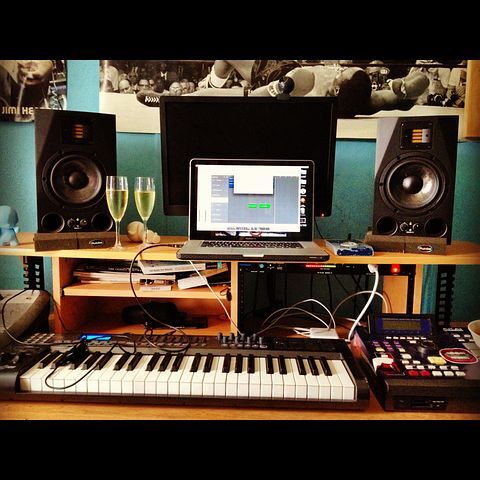Behind the Soundboard: A Look into the World of Audio Engineering for Metal Bands
Cuerpo
When it comes to creating a powerful and impactful metal sound, audio engineering plays a vital role. From the recording process to mixing and mastering, audio engineers are the unsung heroes behind the scenes who help bring a band's sound to life. In this article, we'll take a closer look at the world of audio engineering for metal bands and explore what it takes to create a truly epic sound.
The Recording Process
The recording process is the first step in creating a metal album, and it's essential to get it right. Audio engineers work closely with the band to capture the sound they're looking for and ensure that each instrument is recorded in the best possible way.
One of the most critical aspects of the recording process is mic placement. The placement of the microphones can significantly impact the sound of the recording, and it's essential to experiment with different placements to find the best position for each instrument.
In addition to mic placement, audio engineers also use a variety of tools and techniques, such as EQ and compression, to achieve the desired sound. They work closely with the band to ensure that each instrument is recorded at the appropriate levels and that the overall sound is balanced and cohesive.
Mixing the Tracks
Once the tracks have been recorded, it's time to mix them together to create a final product. Mixing is the process of balancing the levels of the different tracks and applying effects to create a cohesive sound.
Metal music often features multiple instruments playing simultaneously, and it's essential to balance them to ensure that each instrument can be heard clearly. Audio engineers use EQ to adjust the tonal balance of each instrument and ensure that they fit together harmoniously.
They also use effects, such as reverb and delay, to create a sense of space and add depth to the mix. By carefully balancing the levels of each track and applying effects in the right places, audio engineers can create a powerful and impactful sound that truly captures the essence of metal.
Mastering the Mix
The final step in the audio engineering process is mastering the mix. Mastering involves preparing the final mix for distribution and ensuring that it sounds great on all playback systems.
During mastering, the overall tonal balance of the mix is adjusted, and the final volume level is optimized for playback on different devices. Audio engineers use a variety of tools and techniques, such as compression and limiting, to achieve a polished and professional sound.
Mastering is particularly important for metal music, which often features a lot of dynamic range and can be challenging to mix. By using advanced techniques like multiband compression and carefully balancing the tonal balance of the mix, audio engineers can create a final product that truly captures the spirit of the genre.
Working with Audio Engineers
For metal bands looking to create a truly epic sound, working with experienced audio engineers is essential. A good audio engineer can offer valuable guidance on mic placement, equipment, and mixing and mastering techniques. They can also provide valuable feedback on the band's recordings and help them achieve the sound they're looking for.
Whether you're a new band just starting out or an established act looking to take your sound to the next level, working with an experienced audio engineer can make all the difference.

Conclusion
Audio engineering is an essential part of creating a powerful and impactful metal sound. From the recording process to mixing and mastering, audio engineers play a crucial role in bringing a band's sound to life. By working with experienced audio engineers and mastering the techniques and tools involved in the process, metal bands can create music that truly stands out and captures the attention of fans around the world.










Comentarios